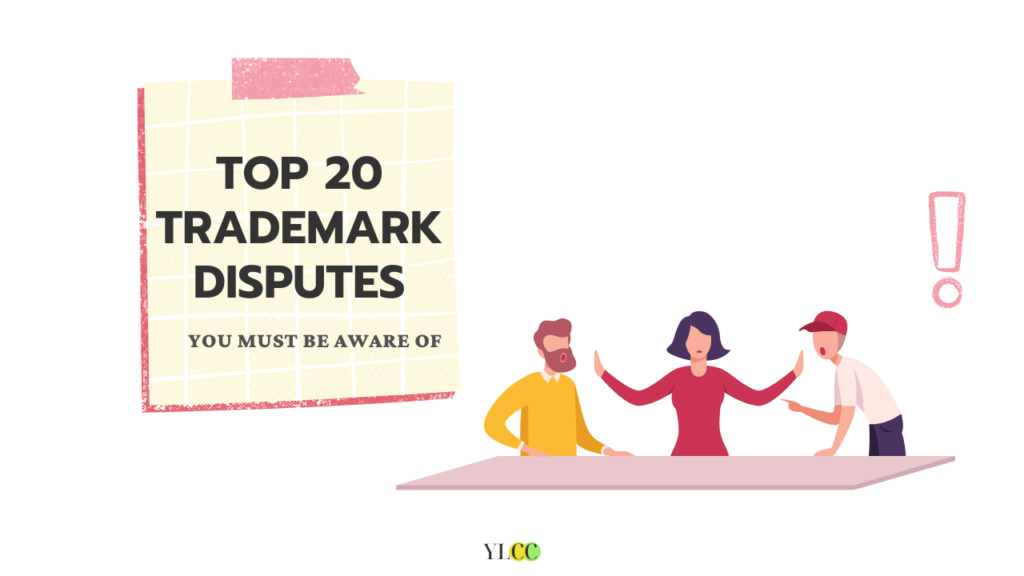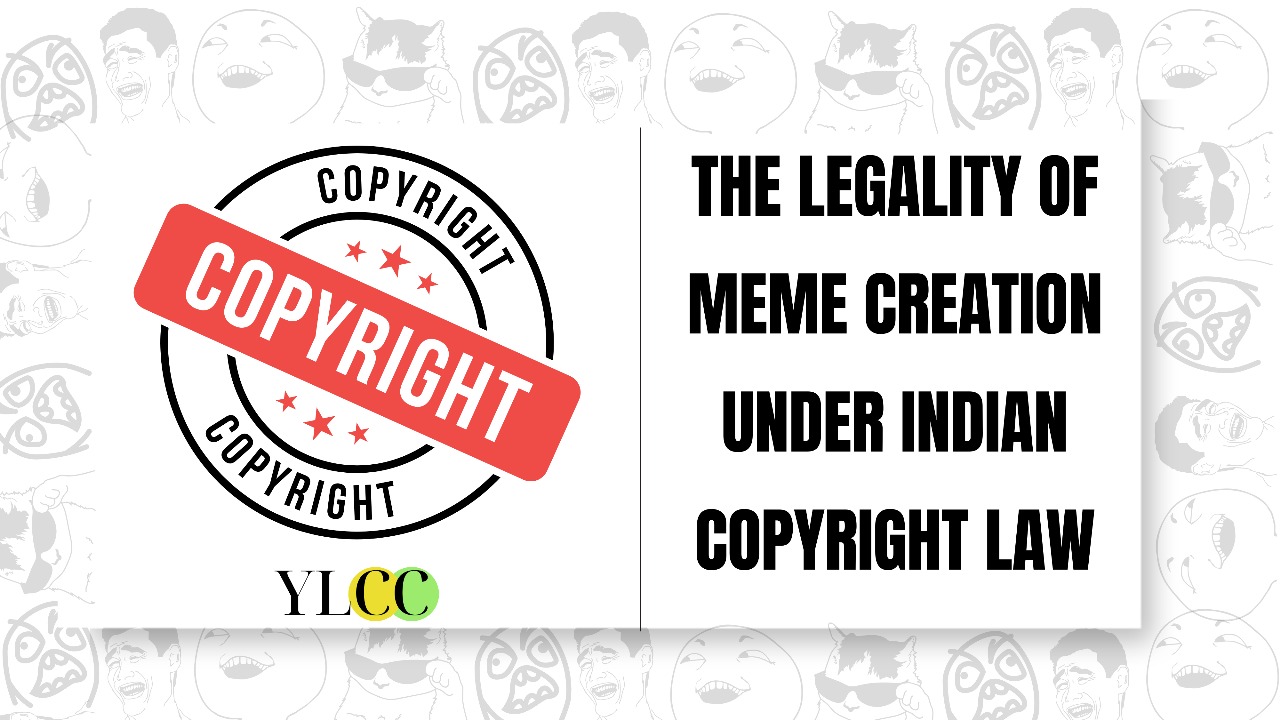
Introduction
A trademark aids in the identification of a product’s or service’s source, allowing consumers to make more informed decisions. A company’s trademark frequently represents a significant percentage of its long-term reputation.
The act of violating a trademark’s exclusive right without the permission of the trademark owner or any licensee is referred to as trademark infringement. However, if there is permission granted and is within the scope of the license, it would not amount to trademark infringement.
According to the Special 301 Report (see here), conducted by the Office of the United States Trade Representative (USTR) under Section 182 of the Trade Act of 1974, as amended (the Trade Act, 19 U.S.C. § 2242):
The establishment of trademark rights is hindered by legal and procedural barriers in several nations, and trademark registration procedures are opaque and inconsistent. For example, in China, the flaws in the trademark system cannot combat widespread bad faith trademark applications because the country does not have an effective framework. This is the reason why examiners are prohibited from considering marks for related goods or services in different classes when assessing bad faith, the likelihood of confusion, and other issues.
In India, trademark infringement is categorized into Direct Infringement (Section 29 of the Trademarks Act, 1999) and Indirect Infringement.
With a year-over-year, there is an increase in cases of trademark filing. Therefore, it comes as no surprise that trademark conflicts are on the rise too. Most of these are highly serious trademark disputes related to corporate branding.
This article discusses 20 trademark disputes which you must be aware of if you are pursuing/want to pursue a career in the Intellectual Property Rights (“IPR”) field.
- Yahoo Inc. v. Akash Arora & Anr:
The Delhi High Court’s decision on the subject of domain names has ruled that they are protected like trademarks in India for the first time. ‘Yahoo India!’ was the domain name of the defendant (Akash Arora). This domain name was identical to that of the plaintiffs (Yahoo) trademark. According to the court, the latter could cause confusion among internet users who would be led to believe that they originate from the same place. As a defence, the defendant cited that he had put a disclaimer on its website.
However, the use of a similar domain name could not be justified by a disclaimer, irrespective of whether ‘yahoo’ is a dictionary word. There was an identifiable association between the name and the plaintiff, making it distinctive and unique.
- Apple Corps v. Apple Computer:
When Steve Jobs incorporated his company by naming it ‘Apple’, it attracted the attention of ‘Apple Corps’ (the holding company founded in the 1960s by Beatles).
In 1978, two years after Apple Computer was launched, Apple Corps, the owner of the Beatles’ record label Apple Records, sued Apple Computer. As part of their agreement, in 1981, Apple Computer agreed not to enter the music industry. However, the agreement didn’t last.
After Apple unveiled iTunes in 2003, the dispute arose again and continued till 2007.
It was decided that all trademarks related to “Apple” would be owned by Apple Inc., and certain trademarks would be licensed back to Apple Corps, such as Apple Corps’ granny smith logo. Following years of negotiations, the Beatles’ back catalogue was finally available on Apple’s iTunes service in 2010.
- Lionel ‘Messi’ v. Massi:
Lionel Messi, the internationally popular Argentinian footballer commonly known as ‘Messi’, fought his case for 7 years before winning his case in 2019. He was allowed to use his name on sporting goods after a high court in Luxembourg ruled in his favour.
In August 2011, when Messi filed for trademark registration at the European Union Office for Intellectual Property (EUIPO), a Spanish cycling brand ‘Massi’ immediately challenged him. They alleged that a trademark under the name ‘Messi’ was quite similar to their own and would cause confusion. This opposition was upheld by the EUIPO in 2013.
- WWF v. WWF:
The World Wrestling Federation fought for 13 years with WWF – the World Wildlife Fund – after changing its name from Titan Sports to the World Wrestling Federation.
In 2001, a court in London ruled in the favour of World Wildlife Fund. However, World Wrestling Entertainment, or WWE, became the new name after the wrestlers spent millions on rebranding.
- DM Entertainment v. Baby Gift House & Ors.:
Daler Mehndi’s company, D.M. Entertainment Pvt. Ltd., is the plaintiff in this suit and was incorporated in 1996. In addition to managing Daler Mehndi’s career, the company raises funds for charities, projects, and the DALER MEHNDI GREEN DRIVE. Daler Mehndi assigned to the Company all his publicity rights, commercial endorsements, and other identical rights.
The defendants (Baby Gift House) were toy and gift shops located in Delhi. The dolls made by them allegedly resembled Daler Mehndi and were imitated and identical to the singer.
The extremely aggrieved plaintiff company filed a permanent injunction to prevent the defendants from committing passing off and infringing the artist’s right of publicity. In addition to the trademark, ‘Daler Mehendi’, all rights, titles and interests in the artist had also been assigned to the plaintiff.
According to the plaintiffs, unlicensed or unauthorized use of the singer’s reputation will lead to the passing off of the goods and services as the singer’s and would deceive the public. Until this time, celebrity merchandise had not been considered from the point of view of publicity rights.
- Kit Kat v. Mondelez:
Kit Kat has been attempting to obtain a trademark for its distinctive chocolate bar shape for several years. In June 2018, however, the European Court of Justice agreed with a previous court’s decision to allow the shape to be used globally and without restrictions.
Several other brands are now capable of operating in Europe, including Norway’s Kvikk Lunsj, a long-standing tea treat, without violating the trademark rules.
- Fortnite v. PUBg:
In January 2018, the developer of the game, PUBG Corp (Pubg), filed a copyright lawsuit against Epic Games, owner of the most popular game, Fortnite, in South Korea.
The suit was filed to defend the idea behind the game. However, the suit was withdrawn without any explanation from the concerned authorities. One point of contention was that both parties had the same major investor, Tencent Holdings. Furthermore, PUBG’s game made use of the Unreal Engine, a software engine developed and licenced by Epic Games.
- Coca Cola Company v. Bisleri International Pvt. Ltd.:
By entering into a Master Agreement, Coca Cola acquired the trademark ‘MAAZA’ from the defendant, Bisleri, including formulation rights, know-how, intellectual property rights, and goodwill for the Indian market.
Eventually, in 2008, Bisleri began exporting fruit drinks under the name MAAZA 2008 after applying for registration of the mark MAAZA in Turkey. In a trademark infringement and passing off a lawsuit, Coca-Cola asked for a permanent injunction and damages.
By issuing the injunction, the court prohibited Bisleri from using MAAZA in India and for export, which constituted trademark infringement.

- Zara Food v. Zara Fashion:
As part of this suit, ZARA fashion company owners sued the owner of ZARA TAPAS BAR in Chennai for trademark infringement and passing off. The plaintiff filed a suit in 2010, in which it intended that its trademark ZARA has been internationally well recognized for over 40 years and has been in use since 1975. Plaintiff has continuously used the mark since 1975, and its reputation had grown, with a presence in over 86 countries and generating more than 10,541 million Euros in annual revenue.
In India, Plaintiff has been operating its manufacturing operations since 1986. The trademark has also been registered in India by Plaintiff. It is believed that Defendant adopted the name ZARA TAPAS BAR for its restaurant around 2003. A trip to Paris led to the designation of the Defendant’s name, as revealed during the court proceedings. The plaintiff then filed a suit against the defendant. The defendant tried to argue that the name ‘Zara’ was common and that consumers would probably not be confused by the similarity since the companies served different markets.
The Delhi High Court ruled that Zara clothing had established a cross-border reputation, leading to the name becoming synonymous with the retailer. Zara was cited as one of the top 50 and 100 most valuable brands in the world, with a brand value of $ 9.4 billion. A deadline was then set by the Court for the defendants to remove signage and other promotional material using the trademark ZARA from their restaurant premises.
- Instagram v. Littergram:
An app ‘Littergram’ came to the attention of Instagram and Facebook. According to their lawyers, using the word “gram” in the title could undermine the brand identity of Instagram.
In a written public letter to Facebook founder Mark Zuckerberg, the owner of Littergram stated that the “unreasonable demands” made by them could kill their momentum. Eventually, Facebook abandoned its trademark suit when the name of the Littergram changed to TeachQuest.
- Milmet Oftho Industries & Ors. V. Allergan Inc.:
In this case, an internationally recognized brand (Allergan Inc.) was granted trademark protection by the Supreme Court. OCUFLOX’s trademark was forbidden from being used by the Indian company. The decision was made even though there had never been any use or registration of the mark in India. It was the respondent who entered the market and used the mark first, according to the court. The fact that the respondent has not used the mark in India does not matter if they are the first to enter the global market.

- Burberry v. Target:
In May 2018, the US retail giant, Target, was sued by British fashion giant Burberry. Burberry claimed that its iconic luxury checker pattern was being copied, infringing on the pattern’s trademark. In September 2018, Burberry and Target settled amicably, but Burberry said that it didn’t surprise them since Target has always collaborated with luxury brands to bring about exclusive Target-only offers, thereby, creating confusion amongst consumers.
- Monster Energy v. Thirsty Beasts:
In 2018, Dan Smith founded Thirsty Beasts, a company that manufactured health drinks. A US-based company, Monster Energy, sued the company for trademark infringement, claiming customers would confuse its “Unleash the Beast” tagline with “Rehab the Beast”.
Thirsty Beasts won the trademark case against Monster Energy, but Monster Energy appealed. Even though Thirsty Beasts won the case, Mr Smith had to give up £75,000 in savings as an outcome of the case.
- Gucci v. Forever 21:
A federal lawsuit was filed by Forever 21 against leading fashion house Gucci in 2017. Forever 21 argued in the Court that its use of blue-red-blue and green-red-green stripes on clothing and accessories did not infringe on Gucci’s trademarks. Furthermore, the company requested that over a dozen Gucci trademark registrations, which are extremely valuable, sought to be cancelled.
In response to a cease and desist letter sent by Gucci, Forever 21 issued a cease and desist order. Eventually, the case was resolved in 2018.
- Walmart v. Variety Stores:
Variety Stores had its trademarks “The Backyard,” “Backyard,” and “Backyard BBQ”, which were found to have been infringed by Walmart. In March 2019, the federal court ordered Walmart to pay $95.5 million in damages. In an appeal, Walmart challenged a lower court ruling that awarded $31.5 million. In its ruling, the jury determined that Walmart’s use of the term “Backyard” could confuse consumers.
- eBay v. UKBAY:
In November 2018, the UK Intellectual Property Office (IPO) ruled that eBay’s monopoly did not prevent ‘UKBAY’ from registering its trademark application, noting that the mark is “highly similar to that of the opponent and that the services are identical or highly similar.”
In April 2018, eBay objected to the application of SC ZuMedia Games for the registration of UKBAY. The IPO, however, rejected the opposition, stating that the user will perceive “UK” in a geographical sense, as “BAY” is the most distinctive part of the phrase.
- Elon Musk’s ‘Teslaquila’ v. Mexican Tequilla Producers:
In October 2018, Elon Musk applied to register ‘Teslaquila’ as a trademark. But, the world-famous Mexican Tequila Producers stopped him. The Consejo Regulador del Tequila (CRT) took up this trademark dispute.
After 2 years, in November 2020, Elon Musk launched ‘Tesla Tequila’ in lightning-shaped bottles, which sold off quickly.
- Warner Bros & Netflix v. Satanists:
In 2018, Satanists, specifically, the Satanic Temple, had sued Netflix and Warner Bros for $150 million. The religious organisation claims that the Netflix show ‘The Chilling Adventures of Sabrina’ infringed on its copyrights, trademark, and harmed its business. It claimed that Netflix’s supernatural series The Chilling Adventures of Sabrina copied the statue of its goat deity Baphomet.
The Satanic Temple then settled the copyright lawsuit against Netflix and Warner Bros. for $50 million.
- JK Rowling v. Nancy Stouffer:
There have been numerous claims of infringements of copyright and trademark by the British novelist JK Rowling regarding the Harry Potter series. An American author, Nancy Stouffer, accused Rowling of heavily citing her book, Larry Potter and His Best Friend Lilly. However, it turned out that the evidence was falsified, and Stouffer had to pay a $50,000 fine.
- Whatman International Ltd. v. P Mehta & Ors.:
Whatman received a massive compensation of 3.85 crores from the defendant in this well-known Indian case for trading on its goodwill and damaging plaintiffs’ various intellectual property rights for the last 25 years. In this case, the first case in which trademark value was acknowledged, defendant’s malafide sale of counterfeit filter papers that were exact copies of Plaintiff’s Filter paper under various trademarks had been permanently stayed.
YLCC would like to thank Nikunj Arora for his valuable inputs in this article.







